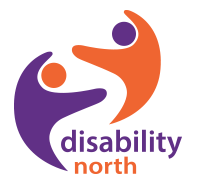A local authority is seeking government funds for a “unique” £4 million project that would transport disabled people into the heart of a historic city via “on demand” electric, driverless shuttles.
The trial would allow disabled people with blue parking badges to request a shuttle service from park and ride facilities on the fringes of York to key amenities and tourist destinations in its pedestrianised city centre, using a kiosk in the carparks or via a mobile phone app, website, or phone.
The routes taken would be “flexible” and would depend upon requests made by disabled customers, with the shuttles running in addition to conventional bus services.
Although the shuttles would be automated and driverless, City of York Council plans for them to be staffed by “customer care assistants”.
The council believes there are about 20,000 potential customers with blue badges in the Greater York area, as well as many more from wider afield.
It says it would work with blue badge holders to design the details of the scheme if it secured the funding.
City of York Council is seeking funds for the project as part of a wider £27 million bid for funding put together by West Yorkshire Combined Authority (WYCA) (PDF) under the government’s Future Mobility Zone scheme, as York moves towards a city centre that is car-free for non-essential journeys.
In its funding bid, WYCA says the scheme would “benefit users’ mobility and increase the opportunities for them to access amenities, services and locations for employment and education.
“This can improve their quality of life and meet their needs as existing commuters, prospective workers, job seekers, people on lower incomes or young people.”
It also says the scheme would reduce the need for people with mobility impairments to make private car journeys into the city centre and would lower their transport costs.
It adds: “We will develop the service offer, customer environment and interfaces with user groups to ensure that it specifically meets their needs and expectations and provides as frictionless as possible a journey to the heart of one of the UK’s premier tourist cities.”
James Gilchrist, the council’s assistant director for transport, highways and environment, said: “City of York Council is bidding for Department for Transport funding which seeks to promote innovations in transport which harness new technologies and support mobility for all.
“Our bid could create the opportunity for York to pioneer an innovative solution to support people with mobility issues in and around our historic and vibrant city.
“This involves trialling a new transport service for mobility-impaired users, registered under the blue badge scheme.
“This proposal is only possible due to our city’s advanced digital infrastructure and our Smart Transport Programme.
“The proposal follows positive conversations at city centre access workshops, where the idea of an ‘on demand’ shuttle service from outside of the city centre was widely well received.”
The Department for Transport said a decision on the WYCA funding bid would be made “in due course”.
9 January 2020. News provided by John Pring at www.disabilitynewsservice.com

